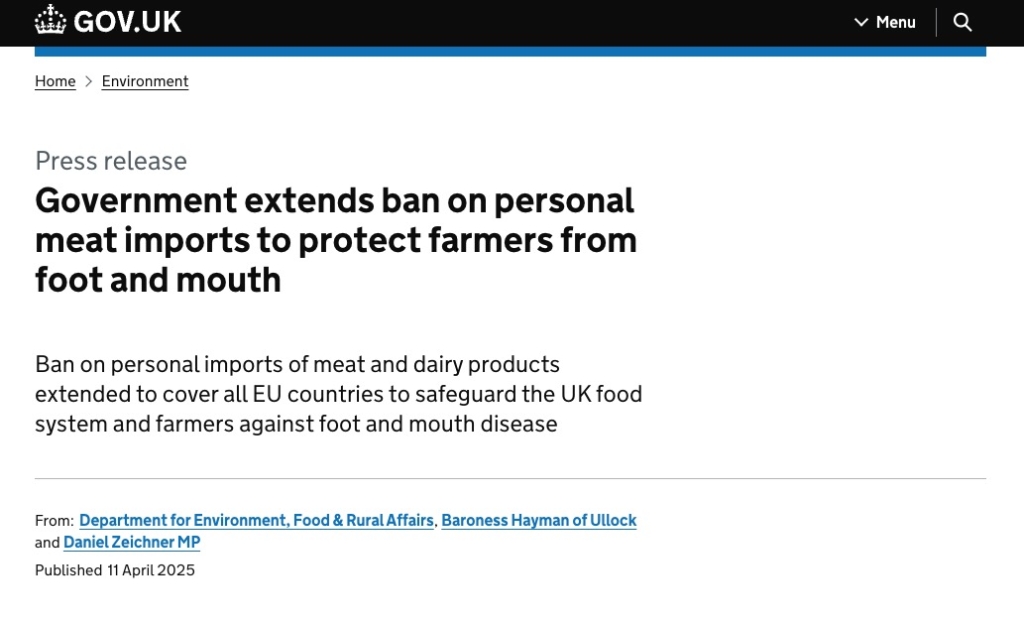Perhaps you're planning a trip to the UK in the near future, or have just returned from a holiday in a European Union country? The UK government has recently extended the ban on personal imports of meat and dairy products from all EU countries.. The measure, which came into force on Saturday April 12, 2025, is designed to protect British farmers and the UK food system from the spread of foot-and-mouth disease.

This decision follows an increase in the number of cases of foot-and-mouth disease across Europe. Although this viral disease is harmless to humans, it is highly contagious in cattle, sheep, goats, pigs and other cloven-hoofed animals such as wild boar, deer, llamas and alpacas. An outbreak in the UK could have disastrous economic consequences for farms, leading to significant production losses and loss of access to overseas markets for animals, meat and dairy products.
What does this mean in practical terms?
From April 12, it is illegal for travellers from all EU countries to bring into the UK items such as sandwiches containing meat or cheese, cheese itself, charcuterie, raw meat or milk.
This prohibition applies whether the products are wrapped, packaged or purchased duty free.
It is therefore crucial not to include these types of food in your luggage when returning to the UK from an EU country.
This extension of the ban does not apply to personal imports from Northern Ireland, Jersey, Guernsey or the Isle of Man.. In addition, certain limited exemptions exist, notably for breast milk, foods for medical use and certain composite products such as chocolate, confectionery, bread, cakes, cookies and pasta.
What are the consequences if you are in possession of these prohibited items?
Customs officers may ask you to hand them over, and they will be seized and destroyed. In the most serious cases, people carrying these products risk being fined up to £5000 in England.

The UK government had already taken similar action earlier in the year, banning personal imports of meat and dairy products from Germany, Hungary, Slovakia and Austria in response to confirmed outbreaks of foot-and-mouth disease in these countries. The extension to all EU countries aims to better protect the UK against the evolving risk of the disease, and to provide clear rules for travellers, making it easier to comply with regulations.
The British Minister of Agriculture, Daniel Zeichnersaid the government will do all it can to protect British farmers from foot-and-mouth disease. The Dr Jorge Martin-AlmagroThe UK's Deputy Chief Veterinary Officer for International and Commercial Affairs, pointed out that the extension of restrictions on personal imports of food products at risk of FMD transmission follows the detection of the disease in EU countries, leading to an increased risk of introduction into Britain.
| Foot-and-mouth disease, although harmless to humans, has had serious historical consequences in the UK. In 2001, an epidemic led to the slaughter of up to 10 million animals and cost the British economy around £8 billion. This preventive measure is designed to avoid a repeat of such devastating events. |

